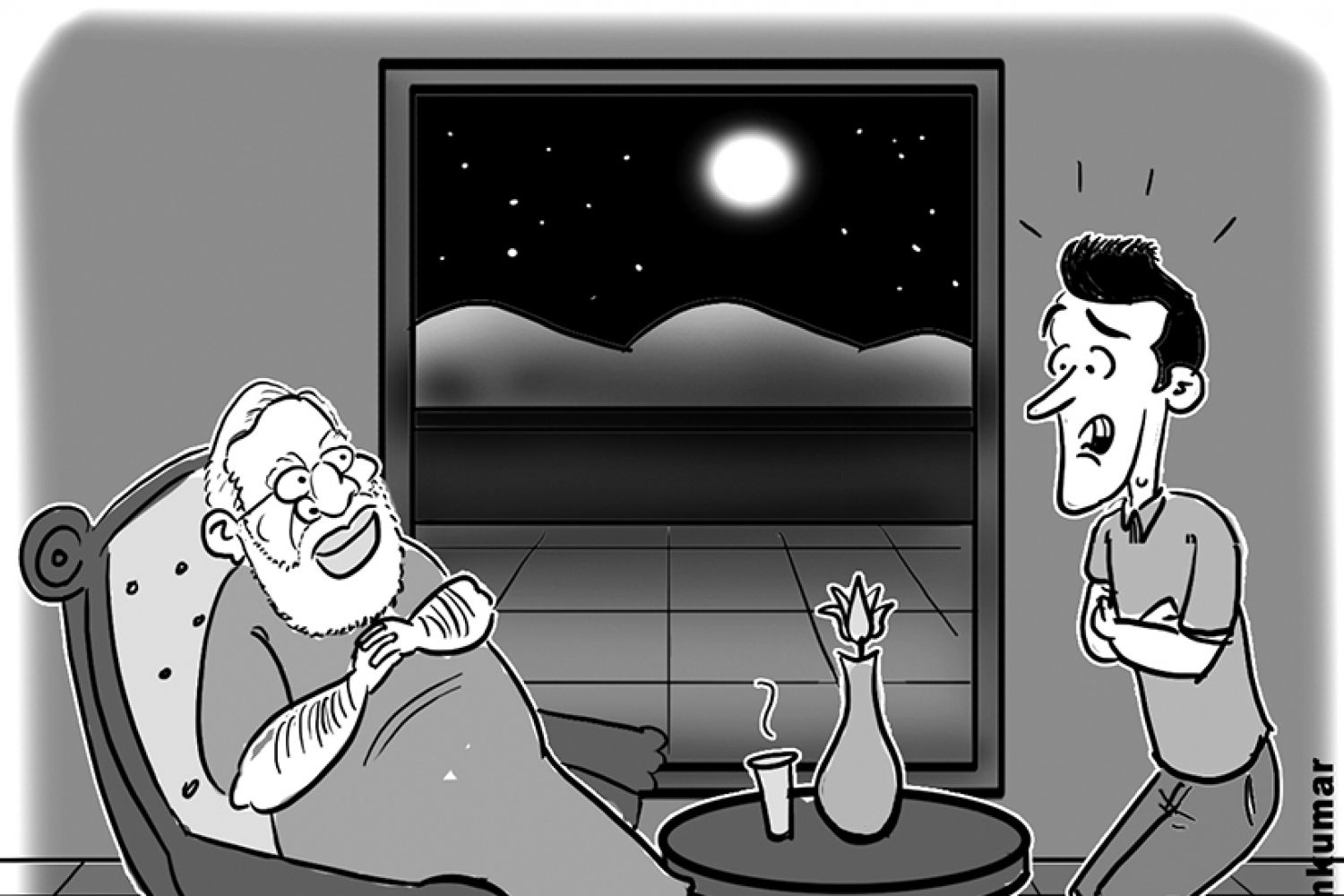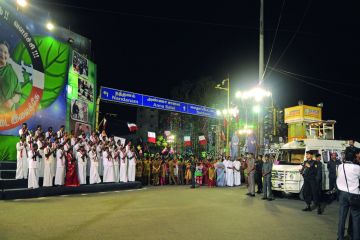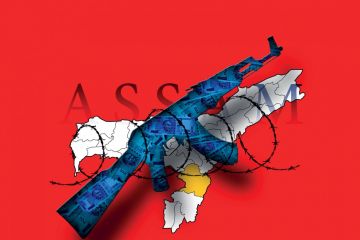
Kasturi, who is this Kasturi?
He is the enemy of farmers,
Come find out the truth from us.
We are all one,
We are all one,
And will stand united against those oppressing farmers...
Don’t you come here tearing down farm prices,
And screaming like a murderer,
Kasturi, who’s afraid of Kasturi?
Dr Krishnaswamy Kasturirangan, ex-chairman of the Indian
Space Research Organisation, current chancellor of Jawaharlal Nehru University
and member of the Planning Com





